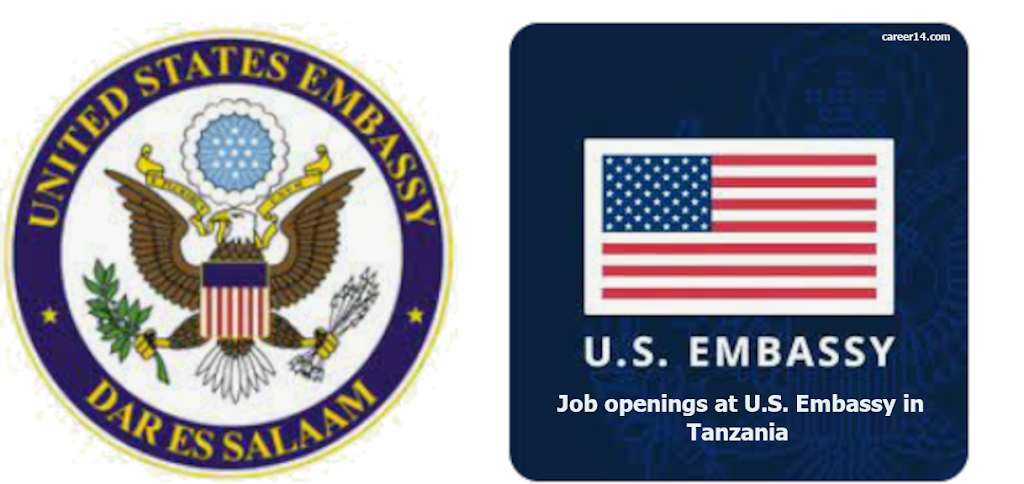nafasi za polisi 2022/2023 | ajira za jeshi la polisi 2022
This page covers all detail like, nafasi za polisi 2022/2023,ajira za jeshi la polisi 2022,nafasi za kujiunga na jeshi la polisi 2022/2023,nafasi za kujiunga na jeshi 2022,nafasi za jeshi 2022/2023,jeshi la polisi tanzania,,jinsi ya kutuma maombi ya kujiunga na jeshi la polisi
All details that will help you to access nafasi za polisi 2022/2023 or ajira za jeshi la polisi 2022 is describe in this page. This Job opportunities is for all Tanzanian passionate to work wizi jeshi la polisi.
Mbinu za kupata kazi za jeshi kwa urahisi >>
Qualities of a Police Officer: sifa kujiunga na chuo cha polisi moshi,kazi
HUMANITY: We respect life and liberty. We are sensitive and inclusive, treating everyone with dignity and compassion.
INTEGRITY: We are guided by the principles of justice. We employ the highest ethical standard, we demand accountability, consistency, fairness and honesty in the performance of our duties.
PROFESSIONALISM: We take pride in our department. We are committed to excellence in our profession, and we maintain the highest standard of education in our field.
COURAGE: Maintain a mental and moral strength to resist opposition and fairness of mind. Always stand by your fellow officers in the face of danger or extreme difficulty. Position duties are inclusive of all required tasks. Employees perform other related work as required.
Mbinu za kupata kazi za jeshi kwa urahisi >>
Duties of a Police Officer: nafasi za kujiunga na jeshi la polisi 2022/2023
- Protects life and property through the enforcement of laws & regulations; Proactively patrols assigned areas
- Responds to calls for police service
- Conducts preliminary & follow-up criminal and traffic investigations
- Conducts interviews
- Prepares written reports and field notes of investigations and patrol activities
- Arrest and processes criminals
- Testifies in court
- Emergency duties required during adverse weather conditions
- Ability to exercise judgment in determining when to use force and to what degree
- Operate a law enforcement vehicle under emergency conditions day or night
- Comprehending legal documents including citations, affidavits, warrants and other documents.
- Commanding emergency personnel at accident emergencies and disasters
- Takes an active role in Community Oriented Policing on campus
- Self initiate traffic and/or criminal investigations.
The police are a constituted body of persons empowered by a state, with the aim to enforce the law, to ensure the safety, health and possessions of citizens, and to prevent crime and civil disorder.[Their lawful powers include arrest and the use of force legitimized by the state via the monopoly on violence.
The term is most commonly associated with the police forces of a sovereign state that are authorized to exercise the police power of that state within a defined legal or territorial area of responsibility. Police forces are often defined as being separate from the military and other organizations involved in the defense of the state against foreign aggressors; however, gendarmerie are military units charged with civil policing.
Police forces are usually public sector services, funded through taxes.Law enforcement is only part of policing activity.Policing has included an array of activities in different situations, but the predominant ones are concerned with the preservation of order.
CLICK HERE TO SEE ALL POLICE JOB OPPORTUNITIES
Tanzania Police Force announces job opportunities for young people with the various fields that are specified in appendix number 1 attached to this ad. The applicant will be required to write a letter of application in his or her hand himself (handwriting)
The letter should be accompanied by a copy of the Academic Certificate certificate), certificate of profession studied, birth certificate, certificate of Leaving certificate, National Identity Card (NIDA)
or NIDA number.
ZIKITANGAZWA TUTAKUWEKEA HAPA HAPA
Tanzania, officially the United Republic of Tanzania (Swahili: Jamhuri ya Muungano wa Tanzania), is a country in East Africa within the African Great Lakes region. It borders Uganda to the north; Kenya to the northeast; Comoro Islands and the Indian Ocean to the east; Mozambique and Malawi to the south; Zambia to the southwest; and Rwanda, Burundi, and the Democratic Republic of the Congo to the west. Mount Kilimanjaro, Africa’s highest mountain, is in northeastern Tanzania.
Many important hominid fossils have been found in Tanzania, such as 6-million-year-old Pliocene hominid fossils. The genus Australopithecus ranged across Africa between 4 and 2 million years ago, and the oldest remains of the genus Homo are found near Lake Olduvai. Following the rise of Homo erectus 1.8 million years ago, humanity spread all over the Old World, and later in the New World and Australia under the species Homo sapiens. H. sapiens also overtook Africa and absorbed the older species of humanity.
Later in the Stone and Bronze Age, prehistoric migrations into Tanzania included Southern Cushitic speakers who moved south from present-day Ethiopia; Eastern Cushitic people who moved into Tanzania from north of Lake Turkana about 2,000 and 4,000 years ago; and the Southern Nilotes, including the Datoog, who originated from the present-day South Sudan–Ethiopia border region between 2,900 and 2,400 years ago. These movements took place at about the same time as the settlement of the Mashariki Bantu from West Africa in the Lake Victoria and Lake Tanganyika areas. They subsequently migrated across the rest of Tanzania between 2,300 and 1,700 years ago.
German rule began in mainland Tanzania during the late 19th century when Germany formed German East Africa. This was followed by British rule after World War I. The mainland was governed as Tanganyika, with the Zanzibar Archipelago remaining a separate colonial jurisdiction. Following their respective independence in 1961 and 1963, the two entities merged in 1964 to form the United Republic of Tanzania. The countries had joined the British Commonwealth in 1961 and Tanzania is still a member of the Commonwealth as one republic.[14]
The United Nations estimated Tanzania’s population at 56.31 million, which is slightly smaller than South Africa and makes it the second-most populous country located entirely south of the Equator.
The population is composed of about 120 ethnic,linguistic, and religious groups. The sovereign state of Tanzania is a presidential constitutional republic and since 1996 its official capital city has been Dodoma where the president’s office, the National Assembly, and all government ministries are located.[16] Dar es Salaam, the former capital, retains most government offices and is the country’s largest city, principal port, and leading commercial centre. Tanzania is a de facto one-party state with the democratic socialist Chama Cha Mapinduzi party in power.
Tanzania is mountainous and densely forested in the north-east, where Mount Kilimanjaro is located. Three of Africa’s Great Lakes are partly within Tanzania. To the north and west lie Lake Victoria, Africa’s largest lake, and Lake Tanganyika, the continent’s deepest lake, known for its unique species of fish. To the south lies Lake Malawi. The eastern shore is hot and humid, with the Zanzibar Archipelago just offshore. The Menai Bay Conservation Area is Zanzibar’s largest marine protected area. The Kalambo Falls, located on the Kalambo River at the Zambian border, is the second-highest uninterrupted waterfall in Africa.
Christianity is the largest religion in Tanzania, but there are also substantial Muslim and Animist minorities.[20] Over 100 different languages are spoken in Tanzania, making it the most linguistically diverse country in East Africa.[21] The country does not have a de jure official language, although the national language is Swahili.Swahili is used in parliamentary debate, in the lower courts, and as a medium of instruction in primary school.
English is used in foreign trade, in diplomacy, in higher courts, and as a medium of instruction in secondary and higher education; although the Tanzanian government is planning to discontinue English as the primary language of instruction, it will be available as an optional course.Approximately 10% of Tanzanians speak Swahili as a first language, and up to 90% speak it as a second language
jinsi ya kutuma maombi ya kujiunga na jeshi la polisi
Use the details below about jinsi ya kutuma maombi ya kujiunga na jeshi la polisi
How to apply for kazi za jeshi la polisi tanzania | nafasi za kujiunga na jeshi 2022
Send Application Letter To Email:[email protected]
DEADLINE: 27/12/2022
Note: jiunge na mamia ya watanzania wanaosaka kazi kushare tips BOFYA HAPA







